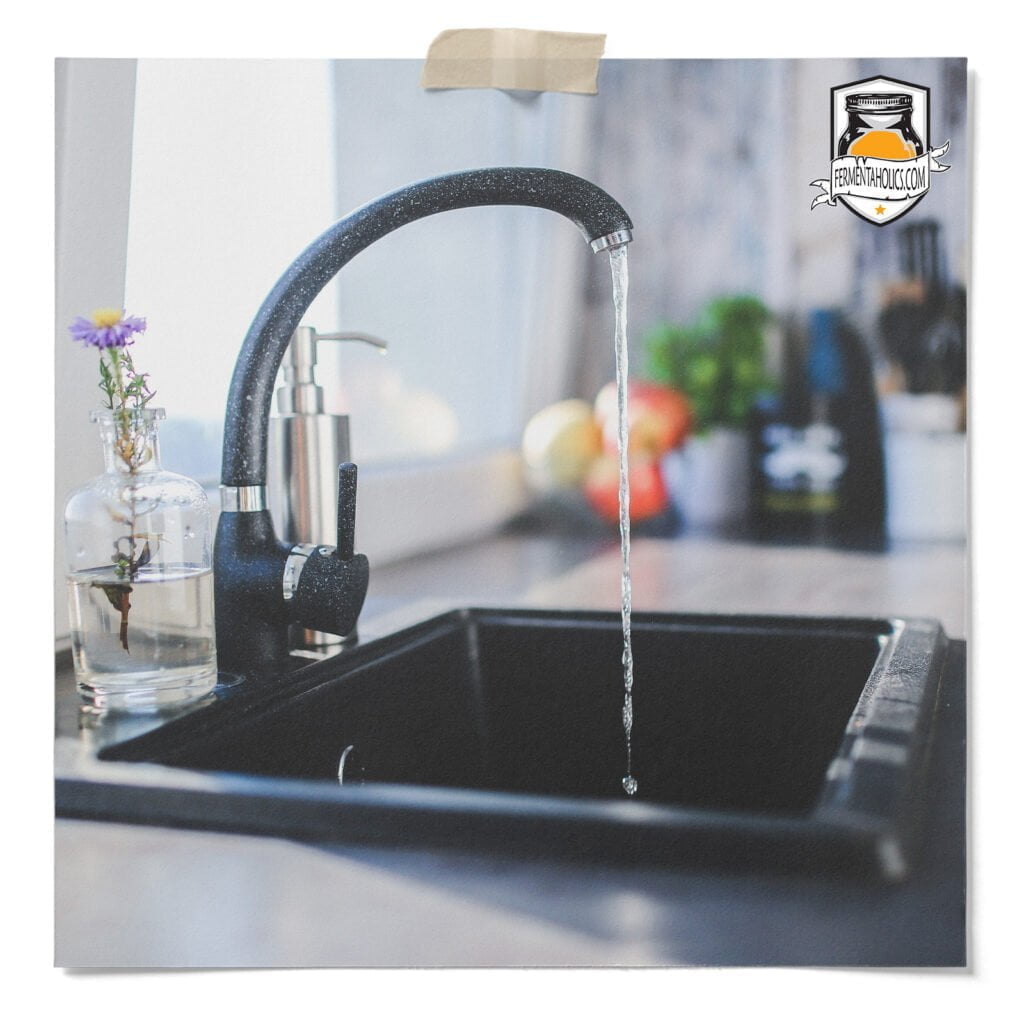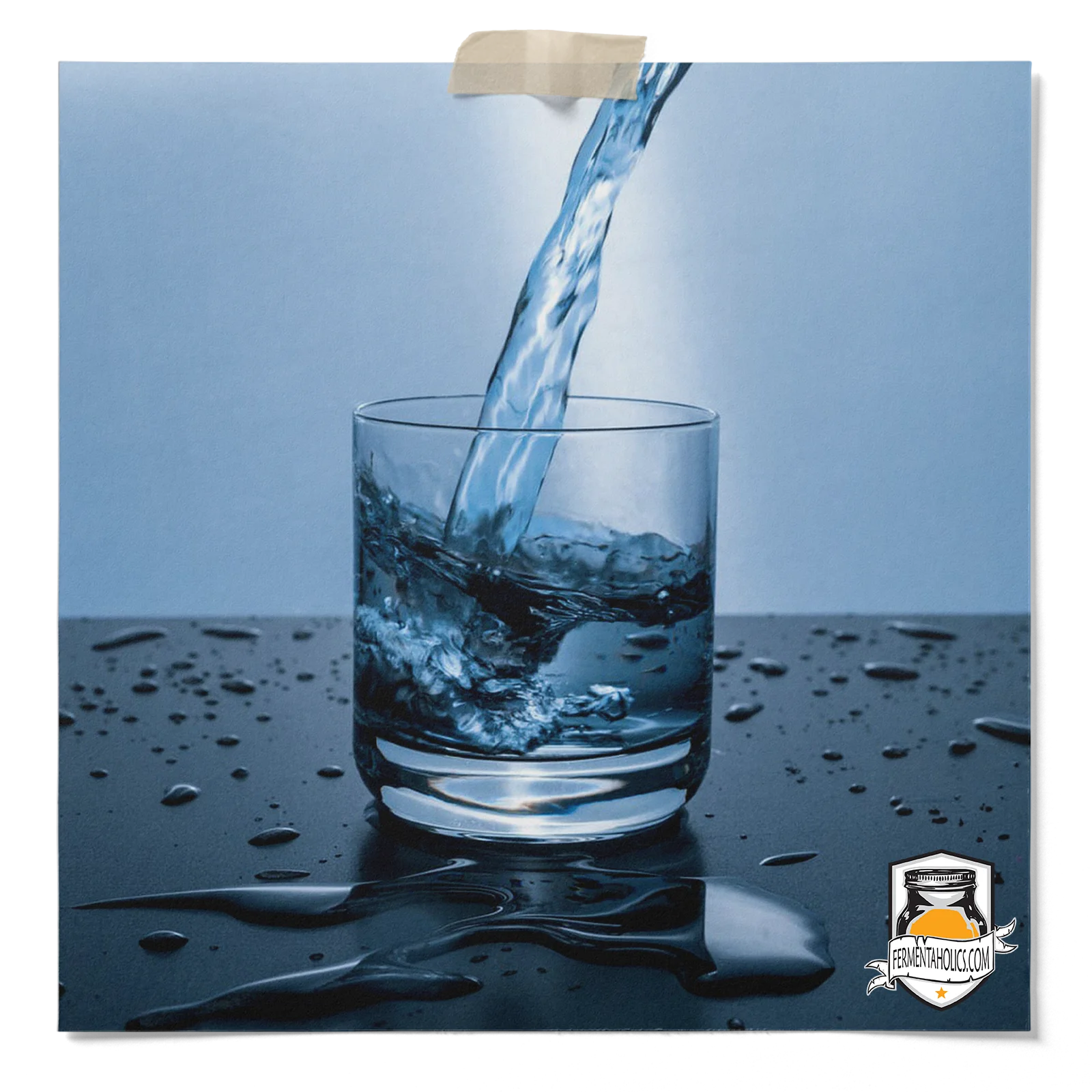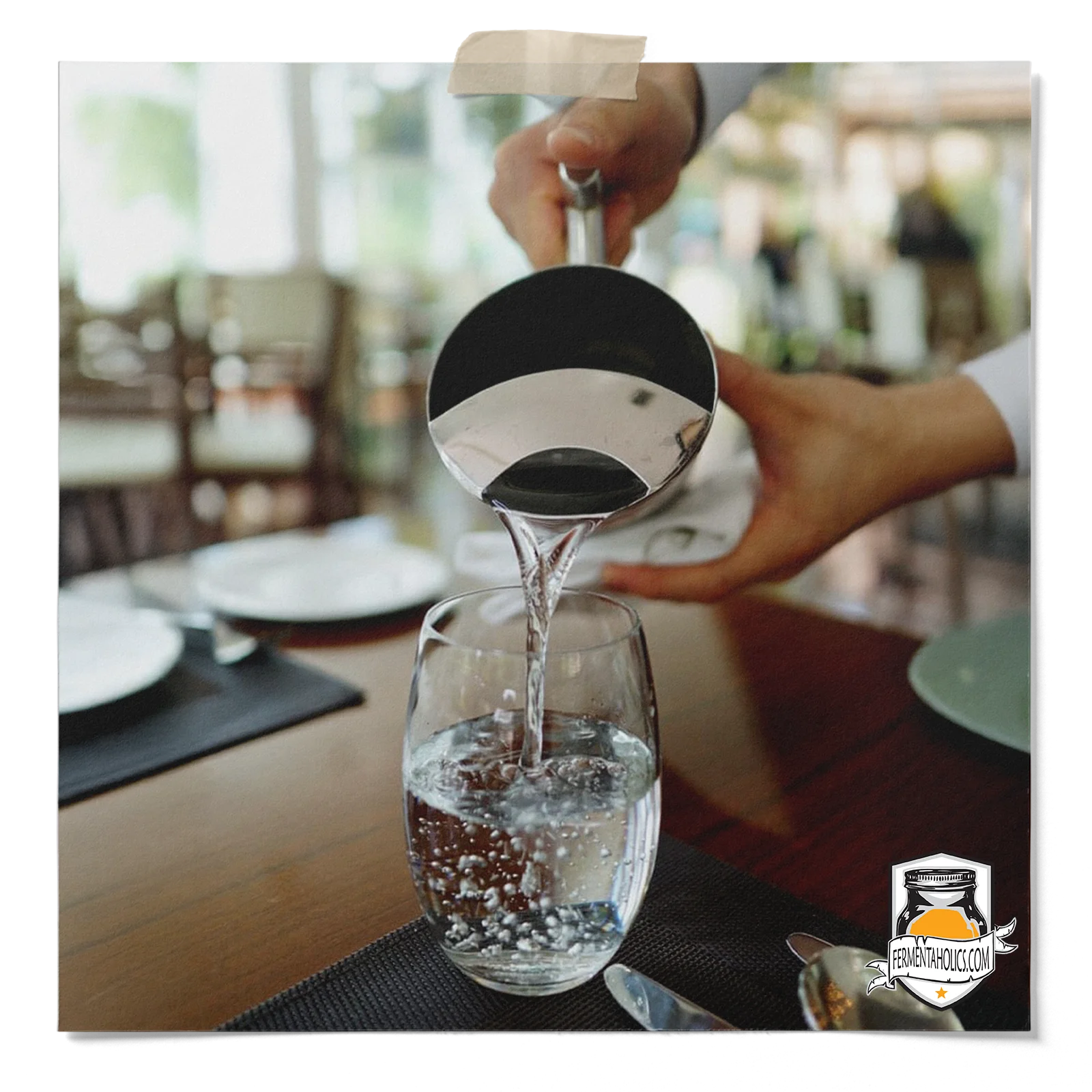
Brewing kombucha is surprisingly easy; after all, it is made from four ingredients. These ingredients are tea, sugar, a SCOBY, and water. Of these four ingredients, water is perhaps the single most overlooked ingredient and shouldn’t be. Kombucha is made up of over 95% water. So water must be considered equally as important as the other three core ingredients. When you start brewing kombucha, the first ingredient is water, as it serves as the base of your kombucha. Choosing a proper water source is essential as it could have a significant impact on the quality of your kombucha, despite doing everything else right.

The most common water sources in question are filtered water, spring water, purified water, distilled water, and maybe even rainwater. Let’s go over each option and how they relate to kombucha brewing.

Some do, but we don’t recommend it. The distilling process strips down the water of all impurities. While this sounds great at first, it isn’t good for the fermentation process. When impurities are removed, valuable minerals are removed along with them. Some of these minerals are necessary for a healthy fermentation. Some may argue that the tea in kombucha provides enough nutrients; the fact is that distilled water is more expensive to buy and isn’t usually readily available for most, so it’s rarely the first choice. Basically, for most people, you will need to go out of your way to brew with distilled water. If you choose to use distilled water, we recommend you remineralize the water with Celtic or Himalayan salt.
Yes, you can, but you do not want to use it straight out of the tap, not unless it’s filtered. If you plan on using tap water to brew kombucha, there are additional steps that are needed to make it suitable for use. This can be as simple as boiling the water or using a charcoal filter before use.
We have a full post on this topic, which can be found here How to Brew Kombucha with Tap Water. Bottom line, if you want to brew kombucha with tap water, you will first need to remove the chlorine or chloramines.
Absolutely! This is a great option for brewing kombucha. What are the downsides? Well, it isn’t the most environmentally friendly option or most cost-effective. It also isn’t much fun lugging the jugs home. But for kombucha brewing purposes, we highly recommended it.
Yes! This is the best option, and luckily, water filters are relatively inexpensive. Also, they last quite a while, which is why this is the best and most practical option.

You want to look for charcoal filtration systems, which most are. The charcoal works to absorb impurities in the water and is effective in removing most of the chlorine and chloramines. The pitcher style filters, like the Brita Filter, use charcoal. I hooked up an under-the-sink filter in our kitchen, similar to this one that I LOVE. It has a separate faucet that comes up next to the main, so I have clean, filtered water on demand whenever I need it.
Rainwater can be used, but it will need to be purified after collection. Rainwater is relatively soft and doesn’t contain a lot of minerals. However, the main issue is the potential contaminants. Depending on the collection method, rainwater can range from reasonably clean to being filled with debris, contaminants, and other pollutants. So unless you plan on taking the necessary purification steps required to make it suitable for brewing, we recommend saving the rainwater for your garden.
So how do these rank? Filtered water is the favorite; it’s practical, efficient, and cost-effective. We hope you found all the information you were looking for and remember no matter what tea and sugar you choose, always remember the important role water plays in your brew.

If you’re using tap water, you need to filter it first. This is because tap water often contains chlorine or chloramine which can hinder the growth of the kombucha scoby.
Yes, you can use distilled water to brew kombucha, but it’s not the best option. It lacks the minerals that are beneficial for the kombucha SCOBY (Symbiotic Culture Of Bacteria and Yeast).
Yes, spring water is considered the best option for brewing kombucha because it naturally contains the minerals necessary for a healthy kombucha culture.
Yes, you can use rainwater, but you need to ensure it’s collected and stored properly to prevent contamination. Also, you must boil it to kill any potential pathogens before use.
Distilled water is not the best choice for brewing kombucha because it lacks the minerals that the kombucha culture needs to thrive.
Spring water is considered the best because it naturally contains the minerals necessary for a healthy kombucha culture and it doesn’t have any of the negative additives like chlorine found in tap water.
You can use tap water, but you need to remove the chlorine and chloramine first by filtering the water through a carbon filter.
You can use filtered tap water or any other bottled water will work just fine.
